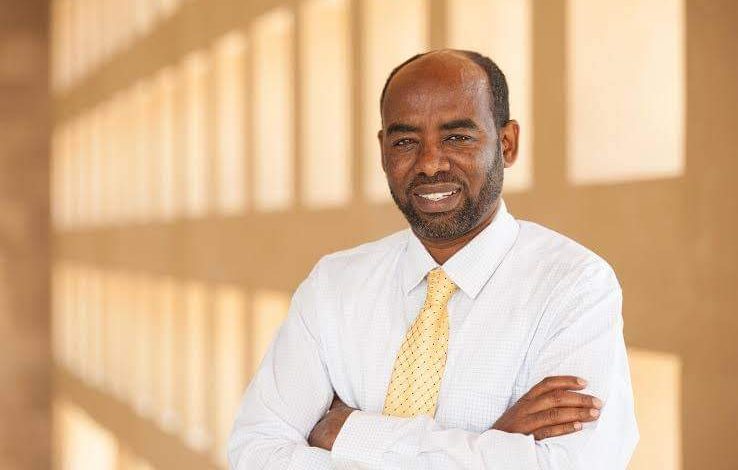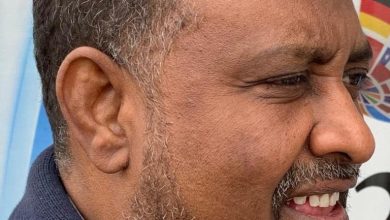“Why should cities be cleared of militias?”

● Dr. Hamed Al-Tijani
– The insistence on evacuating homes and civilian properties, followed by the removal of the Rapid Support Forces (RSF) from political life, are two non-negotiable demands.
We must say this with full confidence: Sudan’s experiences, along with those of neighboring countries, have proven the harmful effects of foreign interventions. Painting a rosy picture or crafting a dreamy narrative about foreign intervention is nothing but deceit or ignorance. Therefore, the Sudanese people will never accept it; it brings no good to Sudan or its future.
Here’s one piece of evidence: international organizations collect donations and consume 30% of the funds raised on salaries and operations. The foreign funding pledges, which amounted to $2.1 billion, have only resulted in the collection of $200 million. Out of this, $140 million is spent on salaries and logistics, leaving only $60 million for the citizens, despite all the media campaigns playing on humanitarian chords.
The RSF has heavily relied on using artificial intelligence in its electronic rooms, focusing on creating a false narrative that portrays it as a peace-seeking entity responsive to regional and international efforts.
International intervention will not only undermine the remaining state institutions and the social fabric, but it will also fuel and multiply the number of opportunistic organizations that benefit from these funds. Certainly, there is a real crisis in food availability, but even when food is available, its distribution remains difficult due to the presence of forces that loot citizens and confiscate aid shipments. This situation has led to a humanitarian crisis in besieged cities like El Fasher, Wad Madani, and Babanoosa.
For all these reasons, the government should take decisive steps to withdraw diplomatic and political cover from the RSF as an initial measure to corner these transnational forces, which are protected by a network of various vested interests.
In this context, the government’s maneuver to send its delegation to Jeddah and present its conditions was a smart move amidst regional and international pressures. This allowed the government to regain the initiative. I specifically refer to Minister Abu Nammo, the head of the government delegation, whom I know personally and can vouch for his competence. He is one of the most skilled negotiators who have led such missions, possessing accurate and comprehensive information about the RSF, its goals, needs, and agents.
It’s also important to note that in previous rounds of meetings between the government and the RSF, the government displayed firmness and decisiveness, without succumbing to regional or international pressures or blackmail, which resulted in the Jeddah Agreement. This agreement must be implemented without delay or procrastination. The government has shown resilience and strength in handling the crisis, which has allowed it to create space and perspective for negotiations.
On the other hand, the RSF has heavily relied on using artificial intelligence in its electronic rooms, focusing on creating a false narrative that portrays it as a peace-seeking entity responsive to regional and international efforts, aiming to exert more pressure on the government. The AI platforms run by the RSF respond automatically to any initiative, without pausing for study, analysis, or consultation.
Division of Issues
The best negotiation strategies involve breaking down issues into parts and then presenting solutions for each part. In the Sudanese case, the dialogue should be directed towards fundamental humanitarian issues, such as displacement, the siege of cities, and attacks on unarmed civilians. This would provide a better negotiating position. While the American mediator is very flexible, he will not grant the government delegation all it aspires to; he employs the “carrot and stick” approach and waits for the government’s reactions.
The American delegation will return with new proposals, especially since its envoy is not in a hurry to close this file; he is a former politician aiming to succeed in his mission, which will push him to be as flexible as possible. Nevertheless, it’s important to realize that Sudan is not on the American voter’s agenda, nor is it among the interests of American politicians. As for Europe, it has been exhausted by the Ukraine war, leaving it with only limited options. Thus, the international community no longer holds that same brilliance and power. Therefore, the Sudanese government must stick to its conditions and continue to maneuver without haste, as it is backed by the support of its steadfast people.
The insistence on evacuating homes and civilian properties, followed by the removal of the RSF from political life, are two non-negotiable demands; any compromise would lead to the resumption of war or, at the very least, turn Sudan into a proxy state. There are attempts to revive the RSF through the ceasefire project, but breaking its power is the solution, which is now within reach due to the people’s resilience despite the massacres and genocide.
The ball is in the Sudanese government’s court, and it holds the initiative; it must not be deceived by the misleading humanitarian cries of “famine” that fill the air with laments over human suffering, for behind this lies a media fabrication machine aimed at manipulating political issues.
“Taqaddum Group,” the political wing of the RSF, can negotiate and present its proposal without hiding behind ambiguous stances, and whatever the negotiations result in will be binding on its military wing. If “Taqaddum” takes this step, it may regain some of its eroded political capital; otherwise, it will not be part of the national political community.
Policy Recommendations
Alongside the aforementioned points, there are several other recommendations that the Sudanese government should consider while dealing with this challenge:
● Engage in Parallel Diplomacy:
While the Sudanese delegations engage with international actors, Sudan should strengthen relations with regional powers that can serve as a counterbalance to Western influence. This could involve reaching out to countries in Africa, Asia, and the Middle East that might support Sudan’s stance on sovereignty and non-intervention.
● Establish Humanitarian Corridors with Guarantees:
Propose the establishment of humanitarian corridors that are jointly monitored by the Sudanese government and neutral international organizations. The aim is to prevent arms smuggling and ensure that aid reaches those in need safely.
● Transparent Communication:
The Sudanese government must maintain open communication with all its citizens, both at home and abroad, to rally material, diplomatic, and political support. It’s essential to activate popular diplomacy, including organizing protests in front of embassies of countries supporting the RSF according to a specific plan, and leveraging media platforms in European countries and the U.S. to influence decision-makers and apply pressure to criminalize them. The government should provide regular updates to the public on its efforts to achieve peace and ensure humanitarian aid reaches the people, while emphasizing that national sovereignty and security are non-negotiable.
● Neutral Mediation:
Call for a more neutral mediation process involving countries or international organizations deemed neutral by the Sudanese state, such as some African Union member states. What the RSF is doing to unarmed civilians cannot be overlooked; neutral mediation can help build trust and facilitate more productive negotiations. Envoys must learn from past experiences that showed that a lack of neutrality leads to failure, which necessitates resignation. The experience of Volker and the Quartet Committee contributed to the militarization of politics and the protection of those who wield weapons.
● Balance-Based Approach:
By adopting a firm and balanced approach, Sudan can assert its national interests while demonstrating its commitment to peace and ensuring the delivery of humanitarian aid. This reduces the risk of further conflict and maintains its sovereignty in the face of international pressure. The signs of victory internally are not far off, and the resilience of Al-Fashir Sultan in the face of the invaders, despite their failed attempts, has increased our people’s confidence in defeating them.



